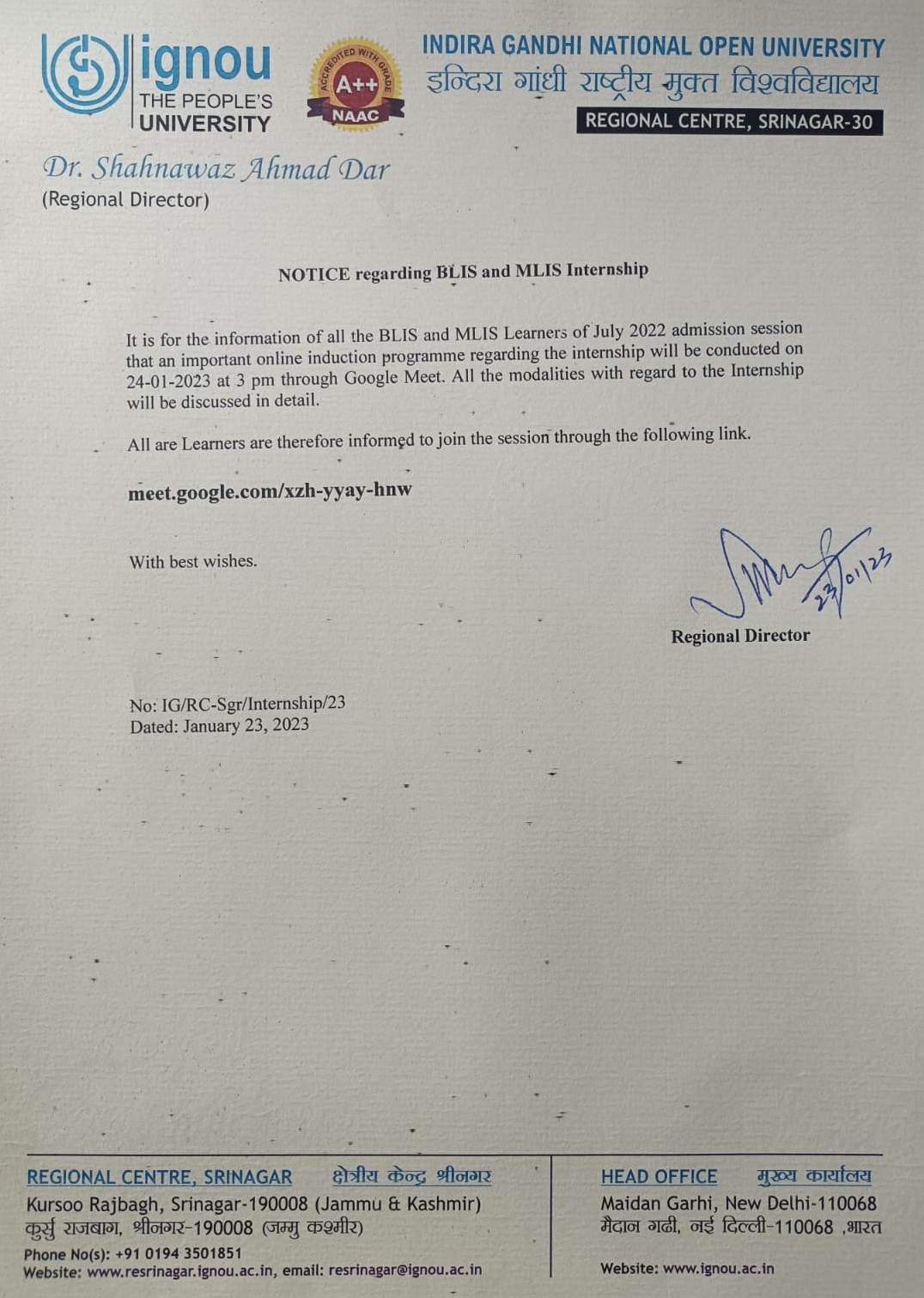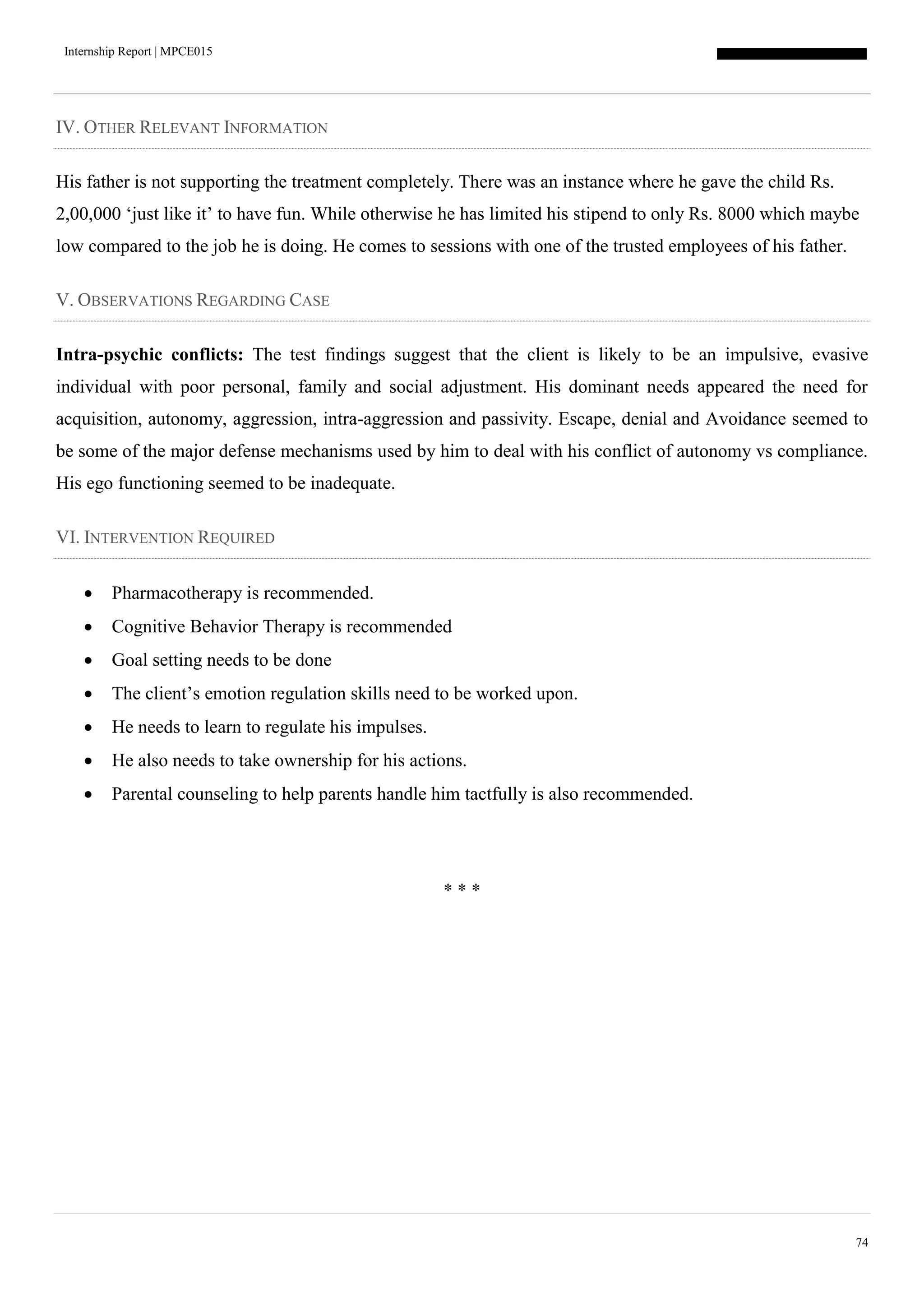Common Mistakes Students Make While Choosing an IGNOU MA Psychology Project Topic (And How to Avoid Them)
Author: Prasoon

Making a decision on the topic of the IGNOU MA Psychology project seems like a simple thing to do, however it's often the process that causes most confusion. Many students either rush the process or go through weeks overthinking, only to settle on something they later regret. An unsuitable topic choice leads to difficulties writing the project proposal, problems with collecting data, mismatched tools, ethics concerns, and even last-minute changes that delay the entire project.
This article outlines some of the most common mistakes students make during topic selection and ways to avoid them by following simple, practical steps.
1. Choosing a Topic That Is Too Broad
This is the most commonly asked question. Students usually pick themes such as:
The impact of stress on mental health
Mental health and wellbeing of teenagers
And the root causes behind it.
Anxiety and stress in our modern lives
These are huge areas, filled with numerous angles as well as hundreds of variables and thousands of studies. It's hard to write a concise research report or formulate any clear methodology.
What causes this to be a problem
A broad subject will lead to:
Confusing research questions
Ambiguity in the objectives
A review of literature that feels scattered
The difficulty of selecting the appropriate tools
How to avoid this error
Begin by limiting your topic with who is, what, where, what, when, or which variable.
Example:
Instead of "Stress in working professionals," choose "Workplace support and emotional exhaustion among call-centre employees."
This instantly makes your research manageable and researchable.
2. Selecting a Topic Without Checking the Availability of Tools
Many students finish a subject and then struggle to find an appropriate psychological scale that matches it. For instance:
"Impact of childhood trauma on adult personality"
"Emotional neglect and long-term behaviour patterns"
These require tools that are specialized, clinical assessments, or lengthy interviews. This isn't feasible for most IGNOU students.
What is the reason this is a problem
Without typical tools:
Your data becomes fragile
The analysis becomes unclear.
The supervisor can reject the idea.
You could end up constructing an unvalidated tool, which weakens the project
How can you avoid this error
Before deciding on your topic, examine whether any common psychological tools are in use for your variables:
Self-esteem - Rosenberg Self-Esteem Scale
Depression - BDI, PHQ-9
Anxiety - Beck Anxiety Inventory
Stress - Perceived Stress Scale
Burnout - Maslach Burnout Inventory
Resilience - CD-RISC
Well-being - WHO-5 Index
Your subject matter should align with tools that are easy to access and easy to use.
3. Picking a Topic That Requires Hard-to-Access Participants
Some subjects sound intriguing, but are essentially impossible to accomplish unless you are in a medical or an institutional environment.
Examples:
Mental health of prisoners
Patients' psychological profiles with severe disorders
The results of counseling among psychiatric patients
Trauma response among the survivors of major accident
What is the reason this is a problem
You are not likely to receive permission from hospitals, prisons, or even from clinical centres. Even if you do, ethical requirements can be confusing.
How can you keep from making this error?
Select subjects where you are able to easily find participants:
College students
Working professionals
Teachers
Office staff
Housewives
Online communities
Peer groups
Centres for coaching
This allows for a smooth data collection without relying on high-level approvals.
4. Choosing a Topic Because It "Sounds Impressive"
Students may choose subjects simply because they are academically or sophisticated.
The neuropsychological characteristics of...
Psychoanalytic research to...
Longitudinal and behavioural results of...
The issue is not difficultness of the task, it's about the practicality.
Why is this a issue
A subject that is chosen purely by its sound usually:
Lacks clear direction
Has no accessible participant group
requires advanced tools or information
Creates difficulty during analysis
How to be sure to avoid this error
Find a subject which is simple but strong. IGNOU appreciates simplicity, not the amount of complexity. A well-focused correlational or comparative study that is done correctly scores higher than an idea that is ambitious and executed poorly.
5. Selecting Too Many Variables
These topics can cause problems:
"Impact of self-esteem, peer support, academic pressure, and screen time on depression."
"Effect of parenting style, attachment pattern, and emotional intelligence on children's behaviour."
A combination of three or four variables at once create confusion.
Why this is a issue
Literature reviews become dispersed
Tools boost
The sample size should be greater than the original.
It is difficult to understand statistical tests.
You lose your focus and clarity.
How can you prevent this mistake
Use just one of two factors. The most important IGNOU projects typically focus on:
One dependent and an independent variable, or
A comparison between two groups
It's all about the details when it involves academic projects at this time.
6. Ignoring Ethical Boundaries
Topics involving self-harm, substance dependence and abuse, trauma or other medical conditions that are delicate require expert handling.
Example:
"Suicidal thoughts among college students"
"Trauma among sexual abuse survivors"
These topics are delicate in the sense of ethical.
What is the reason this is a problem
You could accidentally trigger participants
Supervisors are able to reject the topic
Institutions may refuse to grant permission
You might not have the resources to offer psychological assistance
How to keep from making this mistake
Pick topics that make sure that participants are safe and in emotional well-being. Topics like stress, resilience, self-esteem, coping motivation, burnout and adjustment are more ethically safe and more manageable.
7. Making a Choice on a Topic with no Recent Research or evidence to support it
A few students pick unimportant or vague subjects that don't have much recent literature.
Example:
"Memory retention through rote learning"
"Adjustment in joint families"
"Character development in adolescents"
IGNOU expects your literature review to include recent studies (preferably within the last five to ten years).
How can you avoid this mistake
Search for topics backed by studies conducted in the present:
Digital behaviour
Mental well-being
Academic stress
Balance between work and family
Use of social media
Emotional intelligence
Resilience
The way we live and the mental health of our children.
The more current the research, the more effective your work.
8. Not Matching the Topic With Personal Comfort Level
Certain topics require specialized statistical knowledge or deep theoretical understanding. Students often choose these topics and do not realize they aren't experienced enough in the required analysis.
Why is this a issue
If you're unsure regarding the theory or analysis it will be difficult writing your analysis and connecting results to the literature.
How to stay clear of this error
Pick a subject:
It is easy to understand
You are able to easily explain your ideas.
Connect with common theories
If you choose a topic that feels natural to you will result in better writing.
9. Finalizing a Topic Without a Clear Research Question
Some students decide the title first before attempting to build the rest of their project around it. However, a successful project starts with the topic for research instead of a title.
Examples:
Weak: "Mental Health in Remote Areas"
Strong: "Does social support influence emotional adjustment among rural adolescents?"
A research question is the foundation for your research methodology, tools, analysis, and discussion.
10. Overlooking Practicality of Data Collection
Many students underestimate the time required to collect information. It may appear easy however it may take more time or larger samples than expected.
How to be sure to avoid this error
Ask yourself:
Do I have the ability to collect 50-120 responses in a matter of minutes?
Are the participants available?
Will they be able to comprehend the survey?
Do I require the permission of authorities?
Is my timeline realistic?
If the answers aren't clear, reconsider your topic.
Strong Topic Examples That Avoid All These Mistakes
Here are some practical IGNOU-friendly solutions:
Social anxiety and self-esteem among college students
Work stress and emotional exhaustion among nurses
Digital addiction and sleep quality in teenagers
Support from family members and emotional adjustment in children who attend school
Employee satisfaction and the intention of turnover in customer service personnel
Academic pressure and coping behavior among students in the upper secondary school
Self-worth and comparison on social media among teens
Each is narrow practical, feasible, ethically secure and backed by current tools.

Closing Note
The topic you choose to focus on is clear of thought, concentration, and sensible thinking. If your chosen topic is easily manageable, ethically sound supported by the tools available, and easy to collect data for the remainder of the process will run much more smoothly. The mistakes you make when choosing a topic can cause problems later, so it is worth spending extra time picking a topic that matches your skills and requirements.
If you have any type of inquiries pertaining to where and ways to utilize ignou mapc internship report download, you can contact us at the internet site.